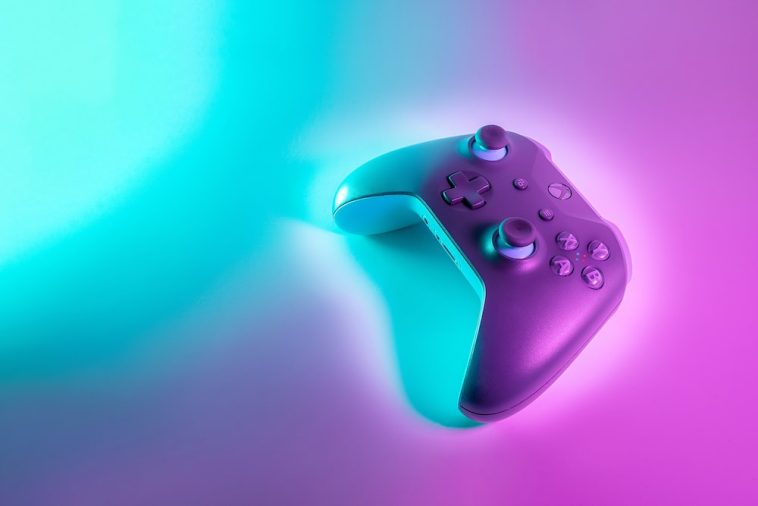Introduction.
Building your gaming PC can seem like a big challenge. You might be wondering where to start, what parts to buy, or if you can even pull it off without frying a motherboard or messing something up. I get it—it’s a lot to take in. But here’s the truth: building a PC isn’t as complicated as it seems.
It’s one of the most rewarding things you can do as a gamer. Not only do you get to create a system that’s tailored to your needs, but you also save money compared to buying a pre-built one.
I’m here to walk you through everything, step by step, so by the end of this, you’ll feel confident and ready to build your first gaming rig.
No confusing tech jargon, no unnecessary details—just simple, practical advice to help you build a PC that runs the latest games and looks great while doing it.
Let’s dive into what you need, how to put it all together, and a few things to watch out for.
Why Build Your Gaming PC?
There are a few solid reasons why building your PC is better than just buying one off the shelf:
- Customization: You choose every single part. Want a case with RGB lights? Go for it. Prefer a quieter PC? You can make that happen.
- Better Performance: Pre-built PCs often have cheaper components to save costs. When you build your own, you can pick high-quality parts that give you better performance in games.
- Cost Savings: You don’t have to pay for labor, and you can often get more power for less money. Plus, you can upgrade parts over time instead of replacing the whole system.
- Learn a New Skill: Once you’ve built one PC, you’ll have the knowledge and confidence to troubleshoot issues, upgrade components, and even build more systems in the future.
How Do I Build a Gaming PC For Beginners?
Step 1: Choosing Your Components
The first step to building a gaming PC is choosing the right parts. Here’s what you’ll need:
1. CPU (Processor)
The CPU is the brain of your computer. It handles all the processing tasks, so you’ll want something powerful enough to handle gaming and multitasking.
- Budget Option: AMD Ryzen 5 5600G
- Mid-Range Option: Intel Core i5-13600K
- High-End Option: AMD Ryzen 7 7800X3D (perfect for gaming)
Tip: Look for at least 6 cores and 12 threads for smooth gaming performance.
2. GPU (Graphics Card)
The GPU is the most important part of gaming. It handles all the visuals, so you’ll want something that can run the games you love at high settings.
- Budget Option: NVIDIA GTX 1660 Super or AMD RX 6500 XT
- Mid-Range Option: NVIDIA RTX 3060 Ti or AMD RX 6700 XT
- High-End Option: NVIDIA RTX 4080 or AMD RX 7900 XTX
Tip: Check the games you plan to play and see what GPU is recommended.
3. Motherboard
The motherboard connects all your components. Make sure it’s compatible with your CPU and has enough ports for everything you need.
- Budget Option: MSI B450 Tomahawk MAX (for AMD CPUs)
- Mid-Range Option: ASUS TUF Gaming Z690-Plus (for Intel CPUs)
4. RAM (Memory)
RAM helps your PC run multiple tasks at once. For gaming, 16GB is the sweet spot, but 32GB is even better if you multitask a lot.
- Recommended: 16GB DDR4 3200MHz or higher
5. Storage
You’ll need storage for your games, operating system, and files. SSDs (Solid State Drives) are much faster than traditional hard drives.
- Budget Option: 512GB NVMe SSD
- Recommended: 1TB NVMe SSD + 2TB HDD for extra storage
6. Power Supply Unit (PSU)
The PSU provides power to all your components. It’s important to get a reliable one with enough wattage.
- Recommended: 650W 80+ Bronze for budget builds
- 750W 80+ Gold for mid-range or high-end systems
7. Case
The case is where all your components live. Choose one with good airflow and enough space for your GPU and cooling system.
8. Cooling
Your CPU will need a cooler. Many CPUs come with a stock cooler, but if you want better performance, consider an aftermarket cooler or liquid cooling.
Step 2: Assembling Your PC
Once you have all your parts, it’s time to put them together. Here’s a quick overview:
- Prepare Your Workspace: Find a clean, flat surface and make sure you’re grounded to avoid static electricity.
- Install the CPU: Carefully place the CPU into the socket on the motherboard. Don’t force it—if it’s aligned correctly, it will slide in easily.
- Install RAM: Pop your RAM sticks into the correct slots on the motherboard.
- Mount the Motherboard: Screw the motherboard into the case.
- Install Storage: Mount your SSD and/or HDD into their slots.
- Install GPU: Insert the GPU into the PCIe slot on the motherboard and secure it with screws.
- Connect the PSU: Plug the PSU into the motherboard, GPU, and other components.
- Cable Management: Tuck away cables to keep everything neat and improve airflow.
- Power On: Double-check all connections, then power on your PC. If everything is connected properly, it should boot up!
Step 3: Installing the Operating System
Once your PC is built, you’ll need to install an operating system. Most people go with Windows for gaming, but you can also use Linux if you prefer.
- Create a bootable USB drive with the Windows installation media.
- Insert the USB into your new PC and boot from it.
- Follow the on-screen instructions to install Windows.
- Install drivers for your GPU, motherboard, and other components.
FAQs
1. How much does it cost to build a gaming PC?
A budget build can cost around $600 to $800, a mid-range build is typically $1,000 to $1,500, and a high-end build can go beyond $2,000.
2. Is it hard to build a PC?
Not really! It’s like putting together a LEGO set but with electronic parts. As long as you follow the instructions and take your time, you’ll be fine.
3. Do I need any special tools?
All you need is a Phillips-head screwdriver. Anti-static wristbands can be helpful but aren’t required.
4. Can I upgrade my PC later?
Yes! One of the best things about building your PC is that you can upgrade parts over time.
Conclusion
Building your gaming PC might sound intimidating, but it’s easier than you think. Once you’ve chosen your components and followed the steps to assemble everything, you’ll have a powerful system ready to tackle the latest games. Plus, you’ll get the satisfaction of knowing you built it yourself.
So, are you ready to build your first gaming PC? What’s the first game you’ll play on it?





GIPHY App Key not set. Please check settings